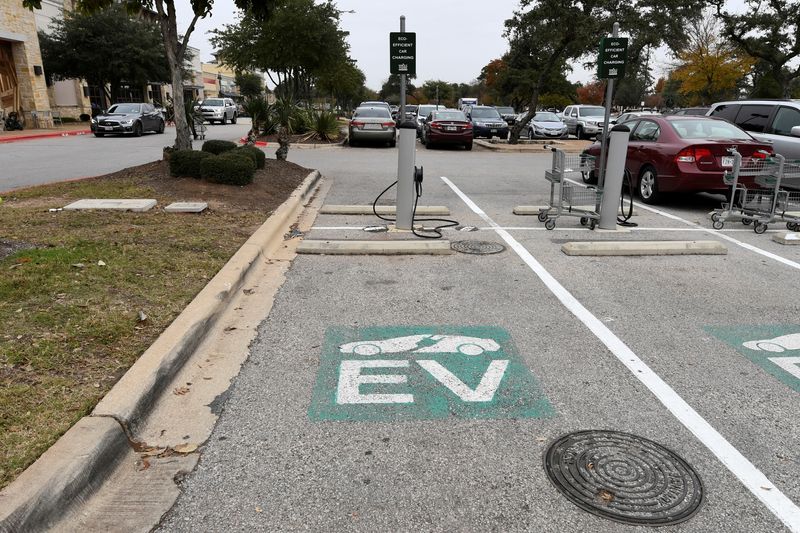Canada welcomes U.S. bill to expand North American EV tax credits
2022.07.28 18:14
2/2

FILE PHOTO: An electric vehicle (EV) fast charging station is seen in the parking lot of a Whole Foods Market in Austin, Texas, U.S., December 14, 2016. REUTERS/Mohammad Khursheed/File Photo
2/2
By Steve Scherer
OTTAWA (Reuters) -Canada on Thursday welcomed a deal reached by U.S. senators to back a bill that includes an expansion of tax credits for electric vehicles (EV) produced in North America that does not discriminate against those manufactured in Canada.
A previous version of the bill presented by President Joe Biden’s administration included tax credits that would have favored American-based manufacturers, sparking furious Canadian lobbying in Washington to get it changed.
The bill had been blocked until Wednesday, when Senate Majority Leader Chuck Schumer and Democratic Senator Joe Manchin reached agreement on a revamped version that instead foresees tax credits for “North American” EVs.
“This is good news for Canadian workers, jobs and our manufacturing industry,” Canada’s International Trade Minister Mary Ng said in a statement.
“As the bill moves through Congress, we will continue to advocate for the importance of maintaining these integrated supply chains and growing a greener and more prosperous future for North America,” she added.
Canadian Prime Minister Justin Trudeau in November lobbied Biden directly to scrap the tax credits that benefited only American manufacturers.
The government feared those tax credits would have undermined Canada’s efforts to produce EVs in Ontario – the country’s industrial heartland – where General Motors Co (NYSE:GM), Ford Motor (NYSE:F) Co and Stellantis NV already assemble cars and trucks and plan a pivot to electric.
Canada’s minister of natural resources last month told Reuters that Manchin would likely block the passage of tax credits that favor U.S.-manufactured EVs and are opposed by Ottawa.
“Since the Prime Minister’s first meeting with President Biden last year, we have been relentless in underscoring that the original proposal would be harmful to both Canada and the U.S., so we’re glad to see that recognized in the new version of the bill,” Ng said.








